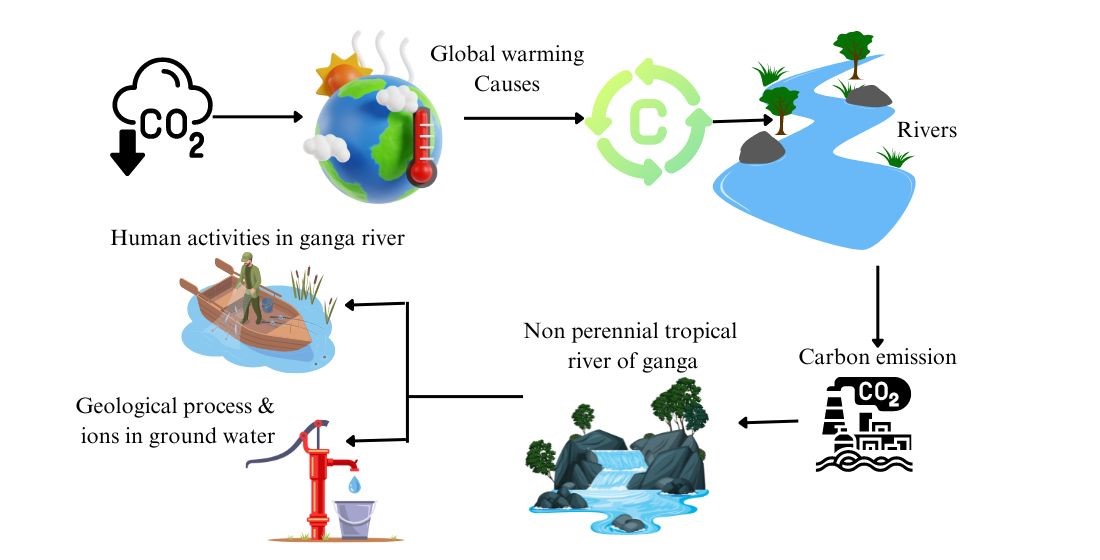
Changes in weather patterns and the global climate are a result of global warming, which has been linked to rising carbon dioxide concentrations. Understanding the mechanisms on earth that have an impact on atmospheric carbon concentrations and its cycling—collectively referred to as the "Carbon cycle"—is essential for estimating carbon budgets. Studies on carbon budgets have largely ignored the role of inland waterways in the carbon cycle, yet rivers play an active role by absorbing/releasing carbon into the atmosphere and transferring dissolved carbon into oceans. In tropical parts of the planet, it is anticipated that water bodies, like as rivers, would contribute to carbon emissions to a greater extent newline Although there are many studies on the impact of human activity on the Ganga River, there are very few that take an ecological viewpoint. In light of these facts, the following was designed as the study's hypothesis: newline The Ganga River has positive feedbacks as a result of human activity, which alters the environment at a level significantly greater than what has previously been projected.The current investigation was conducted in a significant tropical, non-perennial river of the Ganga. In order to calculate the carbon flow of the Ganga river newline, it is important to understand the interaction between geological processes and the concentration of different ions in groundwater and surface water.
Total file downloads: 12